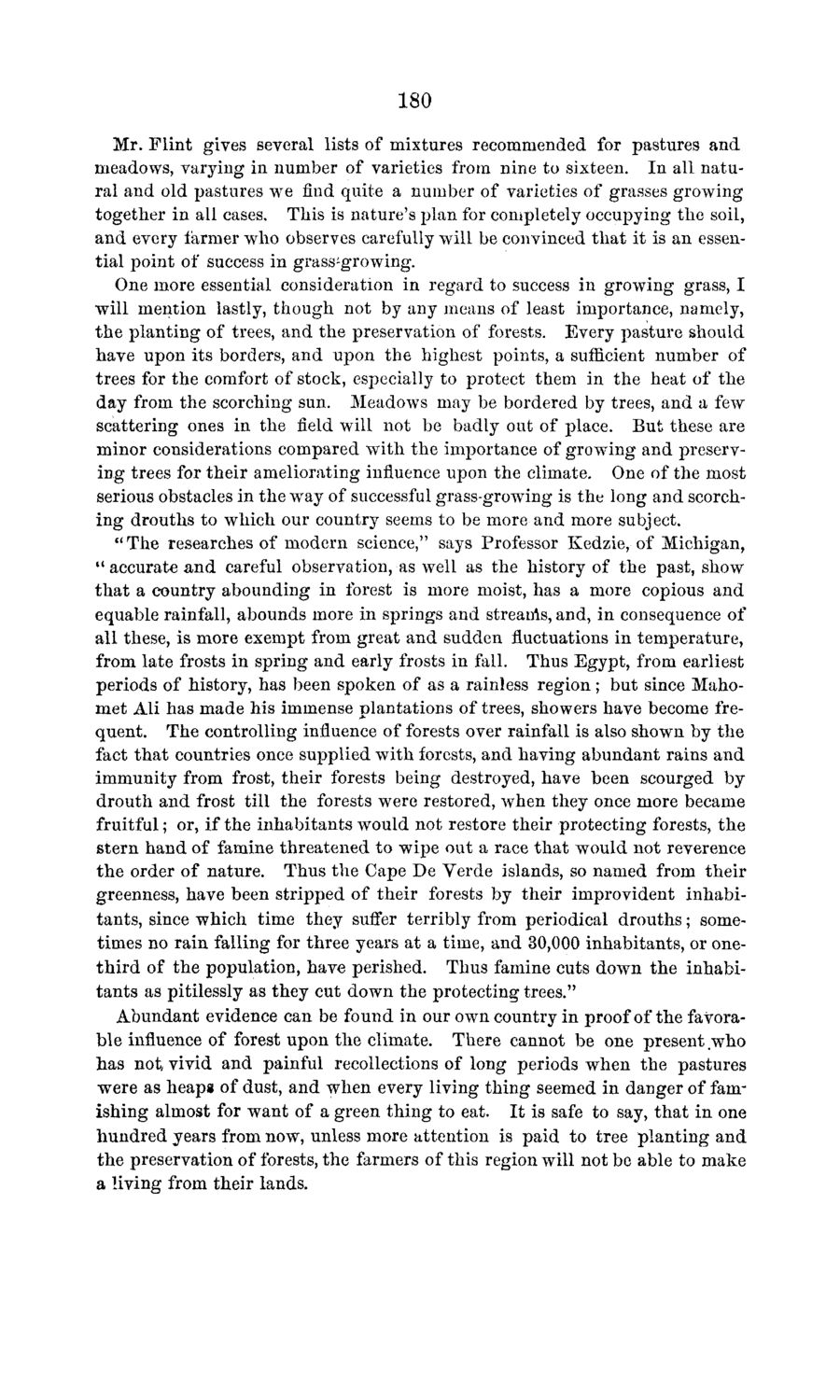| |
| |
Caption: Board of Trustees Minutes - 1869
This is a reduced-resolution page image for fast online browsing.

EXTRACTED TEXT FROM PAGE:
180 Mr. F l i n t gives several lists of mixtures recommended for pastures and meadows, varying in number of varieties from nine to sixteen. I n all natural and old pastures we find quite a number of varieties of grasses growing together in all cases. This is nature's plan for completely occupying the soil, and every farmer who observes carefully will be convinced t h a t it is an essential point of success in grass^growing. One more essential consideration in regard to success in growing grass, I will mention lastly, though not by any means of least importance, namely, t h e planting of trees, and the preservation of forests. Every pasture should have upon its borders, and upon the highest points, a sufficient number of trees for the comfort of stock, especially to protect them in the heat of the day from the scorching sun. Meadows may be bordered by trees, and a few scattering ones in the field will not be badly out of place. But these are minor considerations compared with the importance of growing and preserving trees for their ameliorating influence upon the climate. One of the most serious obstacles in the way of successful grass-growing is the long and scorching drouths to which our country seems to be more and more subject. " T h e researches of modern science," says Professor Kedzie, of Michigan, " accurate a n d careful observation, as well as the history of the past, show that a country abounding in forest is more moist, has a more copious and equable rainfall, abounds more in springs and streams, and, in consequence of all these, is more exempt from great and sudden fluctuations in temperature, from late frosts in spring and early frosts in fall. Thus Egypt, from earliest periods of history, has been spoken of as a rainless region; but since Mahomet Ali has made his immense plantations of trees, showers have become frequent. The controlling influence of forests over rainfall is also shown by the fact that countries once supplied with forests, and having abundant rains and immunity from frost, their forests being destroyed, have been scourged by drouth and frost till the forests were restored, when they once more became fruitful; or, if the inhabitants would not restore their protecting forests, t h e stern hand of famine threatened to wipe out a race t h a t would not reverence t h e order of nature. Thus the Cape De Verde islands, so named from their greenness, have been stripped of their forests by their improvident inhabitants, since which time they suffer terribly from periodical drouths; sometimes no rain falling for three years at a time, and 30,000 inhabitants, or onet h i r d of the population, have perished. Thus famine cuts down t h e inhabitants as pitilessly as they cut down the protecting trees." Abundant evidence can be found in our own country in proof of the favorable influence of forest upon the climate. There cannot be one present .who has n o t vivid and painful recollections of long periods when the pastures were as heaps of dust, and when every living thing seemed in danger of famishing almost for want of a green t h i n g to eat. I t is safe to say, that in one hundred years from now, unless more attention is paid to tree planting and the preservation of forests, the farmers of this region will not be able to make a living from their lands.
| |